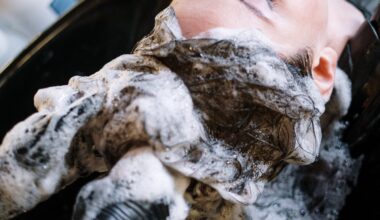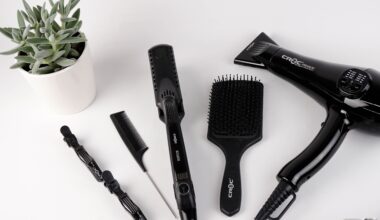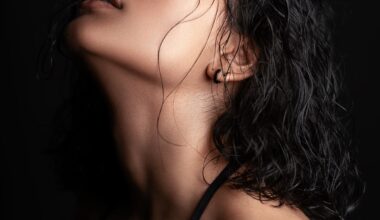Introduction:
Baby hair care is a tender subject for every parent. Those fine, delicate locks are not only adorable but also require a little extra attention. As a parent, you want to ensure that your little one’s hair remains healthy, soft, and beautiful from the very beginning. One of the secrets to achieving this is choosing the right hair oils for your baby. In this comprehensive guide, we’ll explore the world of baby hair care and pregnancy hair care, emphasizing the importance of safe and gentle hair oil choices. Whether you’re a new parent or an expectant mother, join us on this journey to unlock the secrets to nurturing luscious baby hair.
Key Takeaways:
- Choosing the right hair oils is essential for baby hair care and during pregnancy.
- Safe and gentle hair oils are paramount to keep delicate locks healthy.
- This guide will provide insights into hair oils for babies and mothers-to-be.
Hair Oils for Babies:
Baby hair, though fine and delicate, requires proper care and nourishment. Using hair oils for babies is a time-tested tradition that offers a plethora of benefits. Let’s dive into why incorporating hair oils into your baby’s grooming routine is a choice both you and your little one will appreciate.
Benefits of Using Hair Oils for Babies:
- Hair Growth Stimulation: Baby hair is at its most fragile stage, and using the right hair oil can promote healthy hair growth from the very beginning. Oils nourish the scalp and strengthen hair follicles.
- Moisture Retention: Baby hair tends to be dry, and hair oils are excellent for locking in moisture, preventing dryness, and keeping the scalp hydrated. This is especially important in dry or cold climates.
- Preventing Cradle Cap: Cradle cap is a common issue among babies, causing flaky and dry patches on the scalp. Certain hair oils can help prevent or alleviate this condition.
- Enhanced Shine and Softness: Hair oils lend a natural shine to your baby’s hair, leaving it soft and silky to the touch. It’s a noticeable difference that parents often appreciate.
Choosing Safe and Gentle Hair Oils for Babies:
Now that we’ve established the benefits of using hair oils for babies, it’s crucial to emphasize that not all oils are suitable for delicate baby skin. Here are some guidelines for choosing the right hair oil for your little one:
- Natural and Organic: Opt for oils that are natural and free from synthetic additives or chemicals. Cold-pressed oils like coconut, jojoba, or almond oil are excellent choices.
- Hypoallergenic: Ensure the oil is hypoallergenic and free from common allergens to prevent skin irritation or allergies.
- Fragrance-Free: Avoid oils with strong fragrances, as these can be overwhelming for your baby’s sensitive nose and skin.
- Test Before Use: Always do a patch test on a small area of your baby’s skin to ensure they don’t have an adverse reaction to the oil.
Choosing the Right Hair Oil for Your Baby:
As your baby grows, their hair and skin require different levels of care and nourishment. It’s essential to select the right hair oil tailored to their age and unique needs. Here, we’ll provide recommendations for hair oils suitable for babies at different stages of development.
Hair Oil for 3-Month-Old Babies:
At three months of age, your baby’s hair is still in its infancy. It’s incredibly delicate and requires the gentlest care. Opt for a natural and hypoallergenic oil like coconut oil. Coconut oil is not only safe but also nourishing. It helps moisturize the scalp, prevent cradle cap, and promote healthy hair growth without causing any irritation.
Hair Oil for 6-Month-Old Babies:
By the time your baby reaches six months, their hair will have grown a bit. At this stage, you can continue using coconut oil, but you might also consider introducing almond oil. Almond oil is rich in vitamins and minerals that support hair health. It provides additional moisture and strengthens hair strands, making it an excellent choice for babies with more developed hair.
Hair Oil for 7-Month-Old Babies and Beyond:
As your baby’s hair continues to grow and develop, you can expand your choices of hair oils. Jojoba oil is an excellent option for older babies. It’s known for its similarity to the natural oils produced by the scalp, making it easily absorbed and gentle on the skin. Jojoba oil can help maintain hair health and shine as your baby’s hair continues to evolve.
When selecting hair oils for your baby, always prioritize their comfort and well-being. Conduct patch tests when trying new oils, and monitor their skin’s reaction. Remember that every baby is unique, and what works well for one may not work for another.
How to Apply Hair Oil to Babies:
Applying hair oil to your baby’s delicate locks can be a nurturing and bonding experience. It’s not just about hair care; it’s also about creating a moment of comfort and relaxation. Here are step-by-step instructions on how to apply hair oil to your baby’s hair:
Step 1: Gather Your Supplies:
- You’ll need a gentle, baby-friendly hair oil (such as coconut, almond, or jojoba oil), a soft towel or cloth, and a quiet, comfortable space.
Step 2: Warm the Oil:
- Place a small amount of the chosen oil in your palm and rub your hands together to warm it. Make sure it’s not too hot; it should be comfortably warm to the touch.
Step 3: Create a Relaxing Environment:
- Find a peaceful spot where you and your baby can sit or lie down comfortably. Dim the lights if possible and play soft music if it helps soothe your baby.
Step 4: Gentle Massage:
- Begin by gently massaging your baby’s scalp with your fingertips. Use circular motions to stimulate blood flow and relax your baby.
Step 5: Apply the Oil:
- Take a small amount of the warmed oil and apply it evenly to your baby’s scalp. Start at the crown and work your way down to the tips of their hair.
Step 6: Gentle Comb Through:
- Using a soft baby brush or a wide-toothed comb, gently comb through your baby’s hair to ensure even distribution of the oil.
Step 7: Leave-In or Rinse:
- Depending on your preference and your baby’s comfort, you can either leave the oil in or rinse it out after a few hours or at the next bath time.
Step 8: Enjoy the Bonding Moment:
- Use this time to talk softly to your baby, sing a lullaby, or simply enjoy the quiet connection. Your soothing touch and loving presence make this ritual special for both of you.
Frequency:
- How often you apply oil to your baby’s hair depends on their individual needs. Some parents do it a few times a week, while others prefer a weekly routine. Pay attention to your baby’s hair and skin to determine what works best.
By following these steps, you not only provide excellent hair care for your baby but also create a cherished bonding experience that contributes to their overall well-being.
Hair Oil Safety During Pregnancy:
Expectant mothers often have a multitude of questions about the safety of various products during pregnancy, and hair oils are no exception. Here, we’ll address the concerns surrounding the use of hair oils during pregnancy and provide a list of hair oils that are safe for expectant mothers.
Concerns About Using Hair Oils During Pregnancy:
Pregnancy is a sensitive time, and many mothers-to-be are cautious about what they put on their bodies. Some common concerns regarding the use of hair oils during pregnancy include:
- Chemical Exposure: Worries about potential exposure to harmful chemicals or synthetic additives in hair oils.
- Allergic Reactions: Concerns about allergies or skin sensitivities that might develop during pregnancy.
- Hormonal Changes: Questions about how pregnancy-induced hormonal changes might affect the scalp and hair.
Safe Hair Oils for Pregnant Women:
The good news is that there are many natural and safe hair oils for expectant mothers. These oils are not only gentle but can also provide relief from some common hair and scalp issues during pregnancy. Here are some options:
- Coconut Oil: Organic, cold-pressed coconut oil is a versatile and safe choice during pregnancy. It’s known for its moisturizing properties and can help with dry scalp and hair.
- Olive Oil: Extra virgin olive oil is another excellent option. It’s rich in antioxidants and can nourish both the scalp and hair.
- Argan Oil: Argan oil is a lightweight, nutrient-rich oil that’s safe for pregnant women. It helps manage frizz and adds a healthy shine to hair.
- Castor Oil: If you’re dealing with hair thinning during pregnancy, castor oil can be beneficial. It’s known for its potential to promote hair thickness and growth.
- Jojoba Oil: Like coconut oil, jojoba oil is safe and versatile. It closely mimics the natural oils produced by the scalp, making it a gentle choice.
Patch Test and Consultation:
During pregnancy, your skin may be more sensitive than usual, so it’s essential to conduct a patch test before using any new product. Apply a small amount of the chosen oil to a small area of your skin and monitor for any adverse reactions.
Additionally, it’s always a good idea to consult with your healthcare provider or dermatologist for personalized recommendations based on your specific pregnancy and skin condition.
Hair Oil Alternatives During Pregnancy:
While some expectant mothers may prefer to avoid hair oils during pregnancy due to concerns or sensitivities, there are alternative hair care methods that can help maintain healthy locks and a soothing scalp. In this section, we’ll explore natural remedies and precautions for pregnant women looking for alternative hair care options.
- Gentle Shampooing:
Opt for mild, sulfate-free shampoos that are safe for daily use. Gentle cleansing can help keep your scalp and hair clean and healthy.
- Hydration from Within:
Stay well-hydrated by drinking plenty of water. Proper hydration is essential for overall hair health, especially during pregnancy when hormonal changes can affect hair texture.
- Balanced Diet:
A well-balanced diet rich in vitamins and minerals can promote healthy hair growth. Include foods high in biotin, folic acid, and protein.
- Scalp Massage:
Regularly massaging your scalp with your fingertips can stimulate blood flow, promote relaxation, and enhance hair health.
- Silk Pillowcases:
Sleeping on silk pillowcases can reduce friction and minimize hair breakage during the night.
- Protective Hairstyles:
Consider wearing loose, protective hairstyles like braids or loose buns to minimize hair manipulation and prevent excessive hair damage.
- Hair Accessories:
Choose soft hair accessories that won’t pull or damage your hair. Avoid tight ponytails or hairbands.
- Avoid Heat Styling:
Minimize the use of heated styling tools like curling irons or straighteners, as these can cause hair damage, especially when hormones may already affect hair texture.
- Consultation with a Stylist:
Speak with a hairstylist experienced in working with pregnant clients. They can provide guidance on hair care routines and styles suitable for your unique needs.
- Mindful Stress Management:
Practice stress-reduction techniques, as stress can impact hair health. Consider activities like yoga, meditation, or simply taking time for self-care.
Always Prioritize Comfort:
During pregnancy, your comfort and well-being are paramount. Whether you choose to use hair oils or opt for alternative methods, ensure that your hair care routine aligns with your preferences and any recommendations from your healthcare provider.
Common Questions About Hair Oils for Babies and Pregnancy:
As parents and expectant mothers explore the world of hair care, questions often arise about using hair oils for babies and during pregnancy. In this section, we’ll answer some of the most common queries to provide clarity and guidance.
- Is it safe to use hair oils on newborns?
- Yes, it’s safe to use hair oils on newborns, but choose gentle, natural oils like coconut oil. Always do a patch test first to ensure there are no adverse reactions.
- How often should I apply hair oil to my baby’s hair?
- The frequency can vary, but many parents apply oil a few times a week or as needed. Pay attention to your baby’s hair and scalp condition to determine the ideal frequency.
- Can I use scented hair oils for my baby?
- It’s best to avoid strongly scented hair oils for babies, as the fragrance may be overwhelming. Opt for fragrance-free, natural oils to prevent any potential sensitivities.
- Are there any oils I should avoid during pregnancy?
- Some essential oils should be avoided during pregnancy, such as rosemary and sage oil. Stick to safe and gentle oils like coconut, olive, or jojoba.
- Can hair oils cause allergies during pregnancy?
- While allergies can occur, using hypoallergenic, natural oils and conducting patch tests can reduce the risk of allergic reactions.
- Is it necessary to rinse out the hair oil after applying it to my baby’s hair?
- It depends on your preference and your baby’s comfort. Some parents leave the oil in, while others prefer to rinse it out during the next bath.
- How can I prevent cradle cap in my baby?
- Using a gentle, natural oil like coconut oil can help prevent or alleviate cradle cap. Gently massage the oil into your baby’s scalp before bathing.
- Can I use hair oils in the first trimester of pregnancy?
- It’s generally safe to use hair oils during the first trimester, but it’s wise to consult your healthcare provider for personalized advice.
- Are there any hair oils that promote relaxation during pregnancy?
- Certain oils, like lavender or chamomile-infused oils, can provide relaxation benefits during pregnancy. However, ensure they are safe and diluted properly.
- How can I manage hair thinning during pregnancy?
- Consider using gentle hair oils like castor oil to promote hair thickness. Additionally, maintain a balanced diet rich in nutrients that support hair health.
These common questions and answers can help parents and expectant mothers make informed decisions about using hair oils and caring for their baby’s or their own hair during pregnancy.
Special Considerations:
Every baby and expectant mother is unique, and some may have specific hair or skin conditions that require special care. In this section, we’ll address some of these considerations and provide guidance on how to best care for delicate locks and scalps.
- Babies with Sensitive Skin:
- If your baby has sensitive skin, opt for hypoallergenic and fragrance-free hair oils. Always conduct a patch test before using a new product.
- Premature Babies:
- Premature babies often have extra delicate skin. Consult with your healthcare provider before using any hair oils or products on your premature baby.
- Babies with Cradle Cap:
- Cradle cap can be common in infants. Use a natural oil like coconut oil and gently massage it into the affected areas before a bath. Gently comb out any flakes with a soft brush.
- Pregnant Women with Allergies:
- If you have known allergies, be cautious when trying new hair oils. Stick to oils that are safe for your specific allergies and conduct patch tests.
- Pregnancy-Induced Skin Changes:
- Pregnancy hormones can sometimes cause changes in skin and hair. If you notice any unusual changes, consult with a dermatologist or healthcare provider for guidance.
- Babies with Eczema:
- If your baby has eczema, choose hair oils that are gentle and free from irritants. Consult with a pediatrician for specific recommendations.
- Pregnancy and Hair Loss:
- Some pregnant women experience hair loss or changes in hair texture. Consult with a healthcare provider to rule out any underlying issues and consider gentle hair care practices.
- Babies with Very Little Hair:
- Babies with minimal hair still benefit from gentle oiling. Use a minimal amount and focus on scalp health to promote future hair growth.
Always prioritize your baby’s or your own comfort and well-being. Consult with healthcare providers or specialists when needed to address specific concerns related to hair and skin conditions during pregnancy or infancy.
Conclusion:
In this comprehensive guide, we’ve explored the world of baby hair care and safe hair oil choices during pregnancy. From understanding the benefits of using hair oils for babies to selecting the right oils for different stages of infancy, we’ve provided valuable insights and recommendations to help you make informed choices.
Remember that baby hair, though delicate, is resilient when cared for with love and gentle products. Whether you choose coconut oil for your newborn or jojoba oil for your older baby, prioritize their comfort and well-being.
During pregnancy, the use of safe and natural hair oils can help you maintain healthy locks and a soothing scalp. Consult with your healthcare provider or dermatologist when in doubt, especially if you have specific skin or hair concerns.
Ultimately, the secret to luscious baby hair and a glowing pregnancy is not just the choice of hair oils but the care and attention you provide. These moments of bonding and nurturing are as precious as the locks themselves.
Thank you for joining us on this journey to unlock the secrets of baby’s first hair care and safe hair oil choices during pregnancy. May your baby’s hair shine, and your pregnancy glow with health and happiness.





